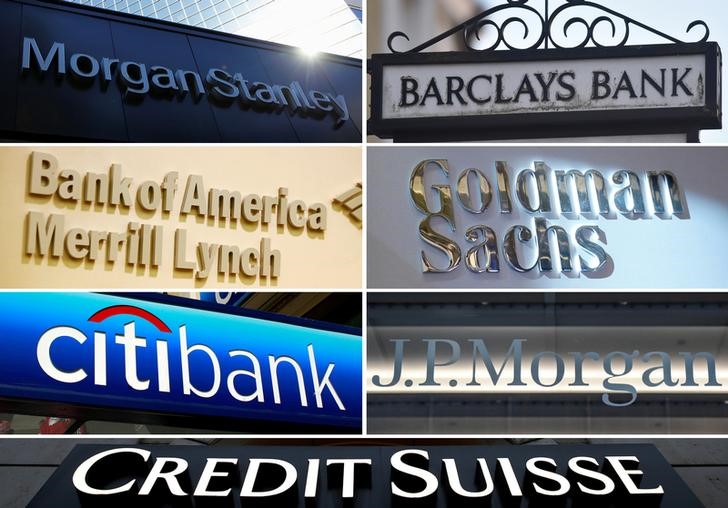By Claire Milhench
LONDON (Reuters) - Banks overtook tech stocks as the most overweight global sector in July, according to a copy of Bank of America (NYSE:BAC) Merrill Lynch's fund manager poll seen by Reuters, with 'long Nasdaq' deemed the most crowded trade for the third straight month.
The survey, which polled 207 asset managers with $586 billion under management, was carried out between July 7 and 13, and showed investors rotating out of technology stocks, which 68 percent of poll participants said were "expensive".
Since the 2009 market lows, tech stocks have been the most overweight sector in portfolios 80 percent of the time, but investors have grown uneasy about the valuations.
The tech-heavy Nasdaq Composite was again picked as the "most crowded" trade, with 38 percent of poll respondents nominating this, the same as last month.
The Nasdaq sold off sharply in June, losing almost 2 percent in the final week, but has rebounded since and is trading back near its previous highs.
Cash levels fell to 4.9 percent from last month's 5 percent, but remain above the 4.5 percent 10-year average.
Some 25 percent of investors who are holding higher cash levels are doing so because of their bearish views on markets, the poll indicated. Expectations that global growth would accelerate fell to 38 percent in July, down from 62 percent in January.
Investors were also concerned about a crash in global bond markets, with 28 percent choosing this as their top tail risk, just ahead of a policy mistake by the U.S. Federal Reserve or European Central Bank, chosen by 27 percent.
Last week, Fed chair Janet Yellen indicated that U.S. rate hikes could be gradual, and weak inflation data on Friday appeared to sharply reduce the chances of a third rate rise this year.
Meanwhile, the European Central Bank (ECB) is keen to keep its asset purchases open-ended rather than setting a potentially distant date on which bond-buying will stop, to retain flexibility in case the outlook sours.

BAML said the ECB was the most likely central bank to spark a global "risk off" trade, with euro zone exposure high relative to BAML's global fund manager survey history.